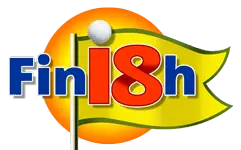CBD FREQUENTLY ASKED QUESTIONS
Everything you could ever want to learn about CBD.
CBD FREQUENTLY
ASKED QUESTIONS
Everything you could ever want
to learn about CBD.
Cannabidiol (CBD) is the second major cannabinoid found in cannabis plants like hemp and marijuana. Unlike the other major cannabinoid THC, CBD is non-psychoactive. The effects of CBD include: alerting at low doses, sedating at high doses, reduces pain, relaxes muscle spasms, potent anti-inflammatory, stops nausea/vomiting, reduces anxiety/depression, counters psychotic thoughts, anti-oxidant, anti-convulsant, neuro-protectant, and anti-tumor effects.
CBD stands for cannabidiol – the second most common cannabinoid found in cannabis. THC is the other most common cannabinoid.
CBD oil is the term used to describe a sublingual tincture of CBD. A CBD oil or tincture is made by mixing a CBD extract from a cannabis plant into a base like alcohol or hemp seed oil. The CBD oil is meant to be held under the tongue and absorbed directly into the bloodstream. A sublingual absorption provides a faster effect than absorbtion via the stomach (i.e. taking a CBD capsule or edible product).
Terpenes are essential oils found in plants. There are around 200 terpenes in cannabis. They are what give cannabis its distinct aroma and flavor. Terpenes have beneficial effects and work synergistically with cannabinoids like CBD and THC – this relationship is called the entourage effect.
Try to keep the CBD tincture under your tongue for 30 – 60 seconds. The longer you can hold, usually the better it will absorb.
The length of time it takes for CBD to take effect will depend on the route of administration. The fastest effect will be felt from smoking or vaporization (onset of effects in minutes). Topical administration of CBD will be felt quickly as well. The next fastest effect will be felt from a sublingual dosage (onset of effects in 15 – 60 minutes). The slowest effect (but the longest lasting) will be felt from oral ingestion (onset felt in 90 minutes). Source: Cannabis Revealed
CBD is considered to be a non-psychoactive cannabinoid so it will not get you high in the way that marijuana (THC) gets you high. But CBD is known to be relaxing so you may feel a sort of subtle “high” and relaxation. For some CBD will be too sedating; others will find that the sedating effects of CBD are great for insomnia.
CBD has shown to have the following effects: non psychoactive (does not cause a high), alerting in low to moderate doses, sedating in high doses, reduces pain, reduces muscle spasms, anti-inflammatory, stops nausea/vomiting, reduces anxiety/depression, counters psychotic thoughts, antioxidant, anticonvulsant, neuroprotectant, and anti-tumor. Source: Cannabis Revealed
People are finding that CBD is useful for many conditions which have not responded well to convential treatments. New ailments which CBD can help treat are being discovered every day. However the most common uses of CBD are treatment of chronic pain, anxiety, and epilepsy.
CBD edibles are food products infused with CBD. Common CBD edibles products are chocolates, gummy bears, or CBD gum. CBD edibles are an oral route of administration of CBD.
Hemp extract refers to the raw extract which is taken from a hemp plant for later processing into CBD oil or CBD products. The most common methods of extraction are CO2 and ethanol extraction.
CBD gummies are a form of a CBD edible: a food product (in this case gummies) infused with CBD.
CBD isolate or otherwise called “pure CBD” is the CBD molecule separated from the the rest of the compounds it normally occurs with. CBD isolate usually appears as a crystalline white powder. CBD isolate can either be synthesized in a lab (synthetic CBD) or made from a CBD containing plant like marijuana or hemp.
A CBD tincture is another term for a CBD oil. In the cannabis industry the word “tincture” and “oil” are used interchangeably. A CBD tincture or CBD oil is a liquid concentrate which contains CBD. Source: Cannabis Revealed
No. CBD is not an FDA approved pharmaceutical or dietary supplement. You may purchase CBD without a prescription.
Yes. Anyone living in a state or country where it is legal to use CBD can buy CBD oil. CBD oil may be purchased over the counter without a prescription.
Currently, the legal status of CBD is not clear. CBD is legal to use in states which allow medical and recreational cannabis use. CBD is legal in states with allow for the use of hemp products. CBD and cannabis laws vary from state to state and it is up to you to know the exact laws for where you live. Click here for more information on CBD law.
CBD is produced inside cannabis plants. CBD is produced by both marijuana and hemp plants. CBD is mostly produced in the resinous trichomes of cannabis flowers. Smaller concentrations of CBD can be found on the stalk and leaves of cannabis plants.
The endocannabinoid system is the collection of cannabinoid receptors, endocannabinoids, and enzymes involved in the production and break down of endocannabinoids. Endocannabinoids are naturally occurring cannabinoids found within our body. The two most studied endocannabinoids are anandamide and 2-AG. The two most studies cannabinoid receptors are CB1 and CB2. CB1 receptors are located mostly in the brain and CB2 receptors are located mostly throughout the immune system.
CB1 receptors are located primarily in the central nervous system (the brain and spinal chord).
CB2 receptors are located primarily in the immune system.
The endocannabinoid system acts a homeostasis regulator in the body. Its purpose is to maintain balance.
No. Lotion made from hemp seeds contains no significant amount of THC and thus will not make you fail a drug test.
No. Hemp protein will not make you fail a drug test as it contains no THC.
Finish 18 Holes Pain Free
Finish 18 Holes Pain Free
CONTACT
2355 Westwood Blvd.
Los Angeles, CA 90064
STE 882
(310) 588-3300
richkey11@gmail.com
SUPPORT
ORDERS
MAILING LIST
Sign up for our mailing list
